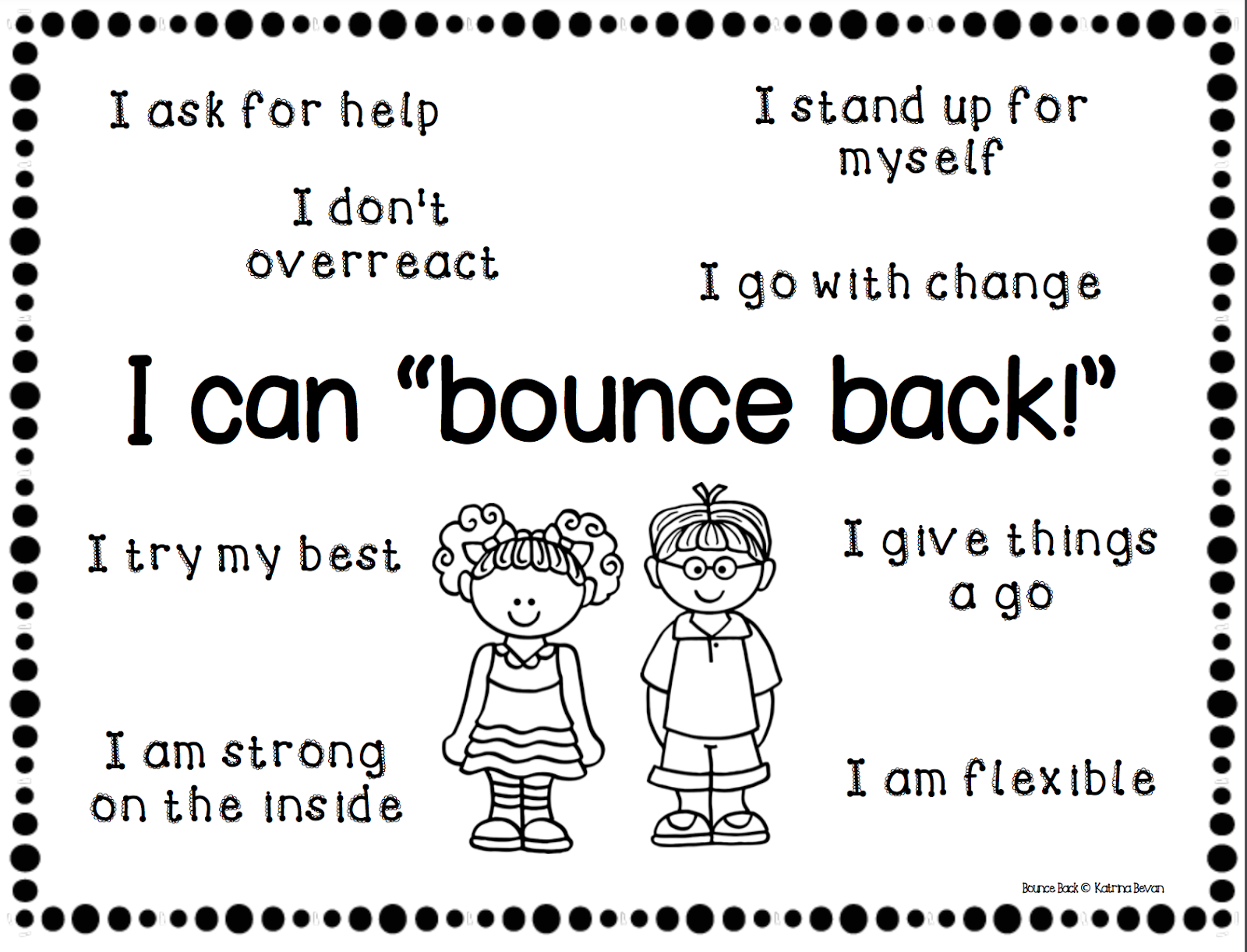APRIL
Resilience
School Happenings...
At the elementary schools students practiced different scenarios and developed different resilient responses. At the high school students explored components of resilience and then identified the resilience skills they possessed.


Introduction
Since life is full of ups and downs everyone can expect to experience setbacks from time to time. Some of these will be relatively minor while others will be much more significant (i.e., the death of a loved one, a life-altering accident, or a serious illness).Each setback brings with it a unique flood of thoughts and emotions. Often there is an element of uncertainty which can itself be quite stressful. However, most people do adapt to the setbacks they encounter, in part thanks to resilience.
Definition
Psychologists define resilience as the process of adapting well in the face of adversity, trauma, tragedy, threat, or significant stress. Researchers find that resilient people will use skills and strengths to cope with, and recover from, challenge rather than falling into despair or engaging in unhealthy practices.
Factors found to be associated with resilient people include the following: Holding a positive view of themselves and their abilities, possessing the capacity to make realistic plans and stick to them, having the belief that they have at least some control of their situation, and viewing themselves as fighters rather than victims.
Becoming Resilient
Researchers assert that anyone can learn and develop resilience and offer the following suggestions:
Embrace healthy thoughts
Keep things in perspective. How you think can play a significant role in how you feel—and how resilient you are when faced with obstacles. Try to identify areas of irrational thinking, such as a tendency to catastrophize difficulties or assume the world is out to get you, and adopt a more balanced and realistic thinking pattern. For instance, if you feel overwhelmed by a challenge, remind yourself that what happened to you isn’t an indicator of how your future will go, and that you’re not helpless. You may not be able to change a highly stressful event, but you can change how you interpret and respond to it.
Accept change. Accept that change is a part of life. Certain goals or ideals may no longer be attainable as a result of adverse situations in your life. Accepting circumstances that cannot be changed can help you focus on circumstances that you can alter.
Learn from your past. By looking back at who or what was helpful in previous times of distress, you may discover how you can respond effectively to new difficult situations. Remind yourself of where you’ve been able to find strength and ask yourself what you’ve learned from those experiences.
Focus on what can be controlled
Most people will feel overwhelmed when faced with adversity but rather than wishing there was a way to change things, try focusing on the things that are in your control no matter how small they are. Ask yourself what you can do about the problem. If the problem seems too big to tackle, break it down into manageable pieces.
For example, if you lose your job, you may not be able to convince your boss it was a mistake to let you go. But you can spend an hour each day developing your strengths or working on your resume. Taking initiative will remind you that you can find purpose even during stressful periods of your life, increasing the likelihood that you’ll rise up during painful times again.
Seek support
The pain of a traumatic event can lead some people to isolate themselves, but it’s important to accept help and support from those who care about you. Sharing your adversity with someone you trust can help you gain insight or offer an idea that might help better manage the challenge. In addition, sharing with a friend or loved one can make you feel like you have someone in your corner.
Proactive steps that aide resiliency
Prioritize relationships. Connecting with empathetic and understanding people can remind you that you’re not alone in the midst of difficulties.
Take care of your body. Self-care may be a popular buzzword, but it’s also a legitimate practice for good mental health and building resilience. That’s because stress is just as much physical as it is emotional. Promoting positive lifestyle factors like proper nutrition, ample sleep, hydration, and regular exercise can strengthen your body to adapt to stress and reduce the toll of emotions like anxiety or depression.
Practice mindfulness. Mindful journaling, yoga, and other spiritual practices like prayer or meditation can also help people build connections and restore hope, which can prime them to deal with situations that require resilience. When you journal, meditate, or pray, ruminate on positive aspects of your life and recall the things you’re grateful for, even during personal trials.
Help others. Whether you volunteer with a local food pantry or simply support a friend in their own time of need, you can garner a sense of purpose, foster self-worth, connect with other people, and tangibly help others, all of which can empower you to grow in resilience.